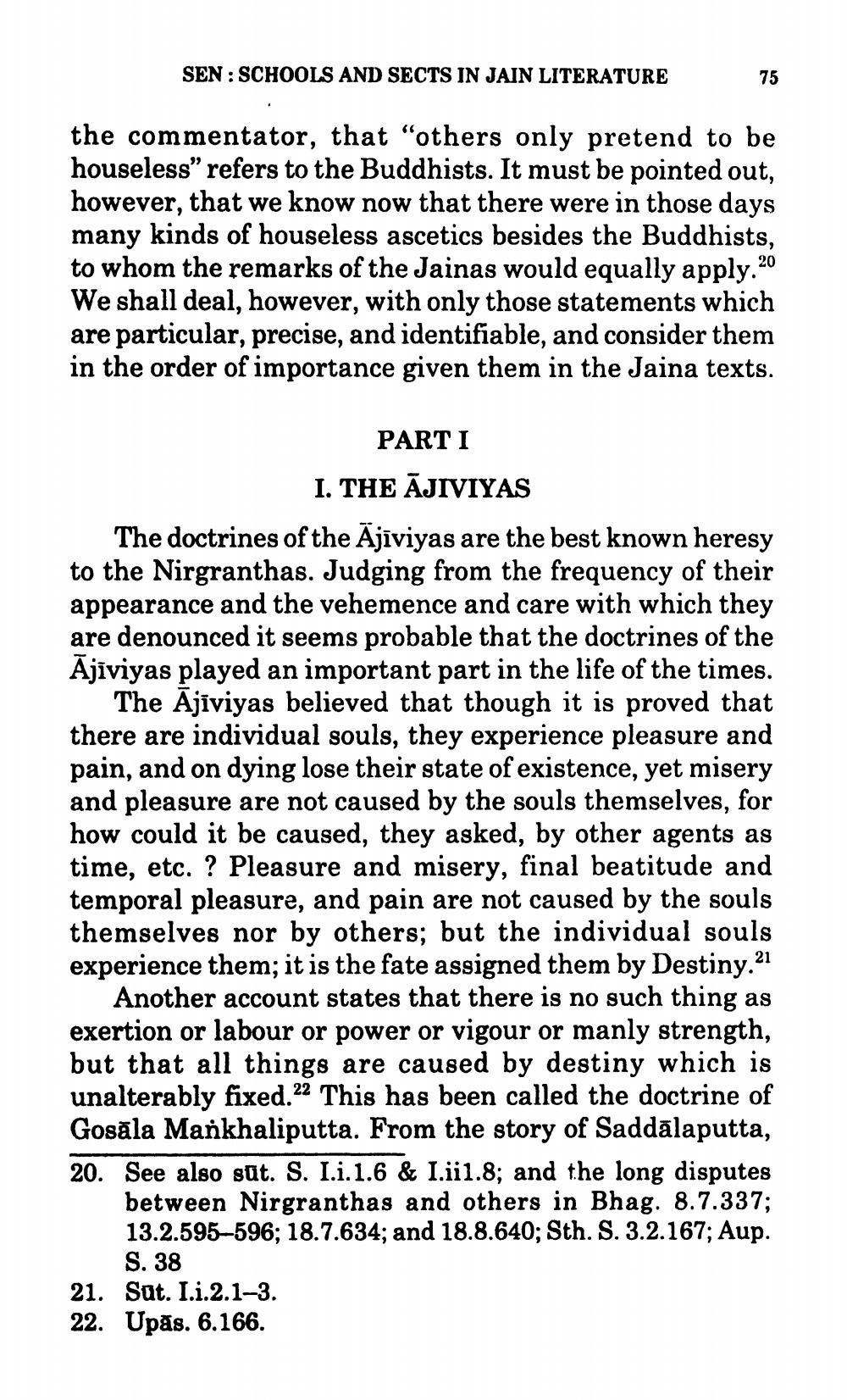________________
SEN: SCHOOLS AND SECTS IN JAIN LITERATURE
75
the commentator, that "others only pretend to be houseless” refers to the Buddhists. It must be pointed out, however, that we know now that there were in those days many kinds of houseless ascetics besides the Buddhists, to whom the remarks of the Jainas would equally apply.20 We shall deal, however, with only those statements which are particular, precise, and identifiable, and consider them in the order of importance given them in the Jaina texts.
PARTI
I. THE ĀJIVIYAS The doctrines of the Ājiviyas are the best known heresy to the Nirgranthas. Judging from the frequency of their appearance and the vehemence and care with which they are denounced it seems probable that the doctrines of the Ājiviyas played an important part in the life of the times.
The Ājiviyas believed that though it is proved that there are individual souls, they experience pleasure and pain, and on dying lose their state of existence, yet misery and pleasure are not caused by the souls themselves, for how could it be caused, they asked, by other agents as time, etc. ? Pleasure and misery, final beatitude and temporal pleasure, and pain are not caused by the souls themselves nor by others; but the individual souls experience them; it is the fate assigned them by Destiny.21
Another account states that there is no such thing as exertion or labour or power or vigour or manly strength, but that all things are caused by destiny which is unalterably fixed. 22 This has been called the doctrine of Gosāla Mankhaliputta. From the story of Saddālaputta, 20. See also sūt. S. I.i.1.6 & l.ii1.8; and the long disputes
between Nirgranthas and others in Bhag. 8.7.337; 13.2.595-596; 18.7.634; and 18.8.640; Sth. S. 3.2.167; Aup.
S. 38 21. Sat. I.i.2.1-3. 22. Upās. 6.166.




